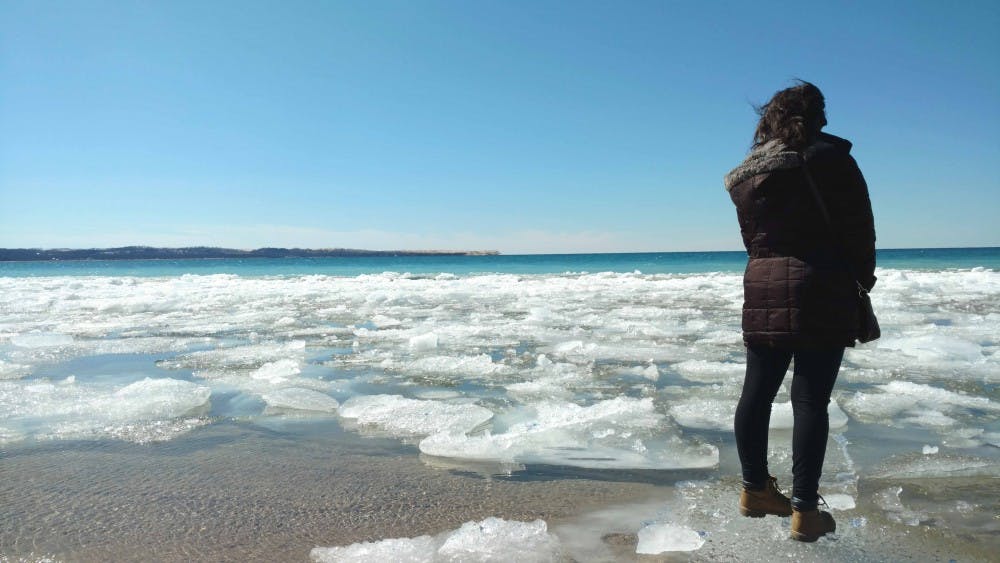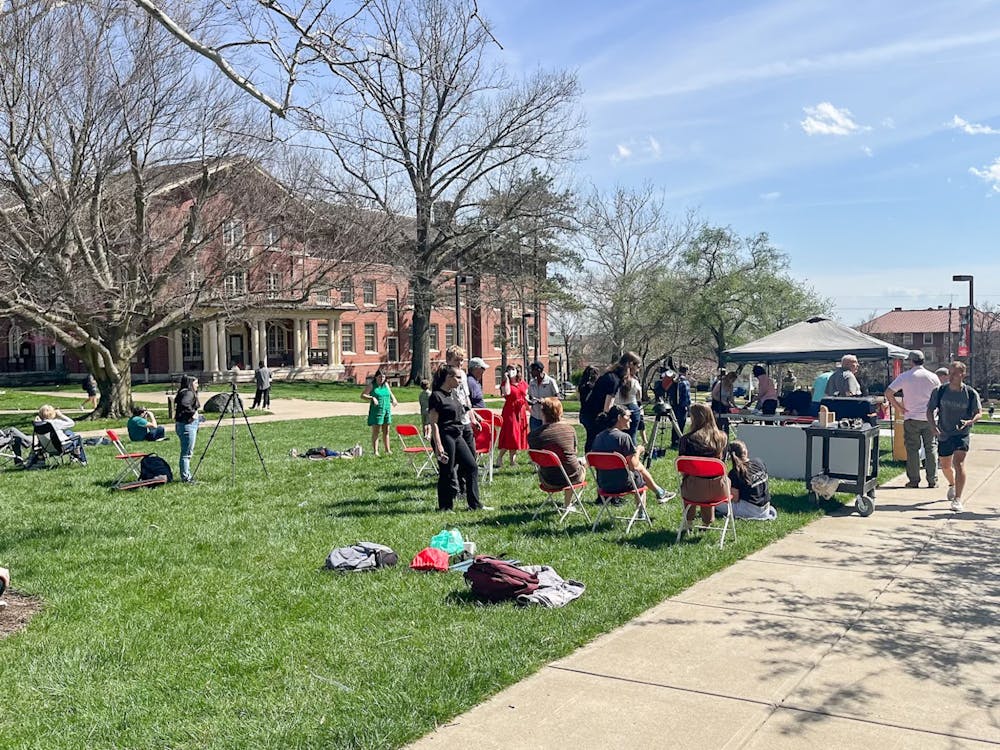If you look up Good Old Books online, you'll find that the Leland, Michigan, used and rare bookstore is only open from mid-May to mid-October. But if, on a cold winter afternoon, you walk up to a gray-blue, bi-level home with an "OLD, RARE BOOKS" sign posted in the yard, you'll find a note signed by George and Mary Ball.
"We live here," the handwritten note will say. The rest of the message will provide you with a phone number and an invitation: Call and, if someone is home, the books are yours to browse.
There might not be a better time, really, to be welcomed into the Balls' basement. Mary will apologize, because she'll still be preparing for the warm tourism months, re-alphabetizing the fiction wall and sorting through the haphazardly piled stacks crowding the nook where books about gardening, the state of Michigan and "Hot Countries" are shelved.
Mary won't mind when you take two hours to painstakingly look at the spine of every volume you can get your hands on, and she'll listen patiently as you gush over a first edition of Edna Ferber's 1924 novel "So Big" or a fantastically bizarre version of "Winnie the Pooh" translated entirely into Latin or the couple's mint-condition collection of the "Rivers of America" series.
If you're really getting along, she might even reach into her desk to find a tiny green volume of Edgar Allan Poe's poems. If she does, then she'll tell you to come closer, tipping the book so you can see the pages' edges which, at first, seem to be stained. But, with a knowing smile, Mary will slightly spread the pages to reveal an impossibly intricate fore-edge painting of a city skyline.
You'll spend far too much money on good, old books.
There won't be any other customers in the store during your visit because Leland -- along with every other small coastal town in northern Michigan -- is "Ethan Frome" Starkfield-level quiet, at least until early April.
In Glen Arbor, another nearby coastal town, the town's population swells to about 5,000 every summer. But, as temperatures drop and the stream of tourists dries up, just about 900 stalwarts are left to stick out the winter months together.
It's the kind of time when shops that promise warm-weather tourists old fashioned candies and kitschy signs are locked up with craft paper covering their windows and hand-drawn signs posted on their doors that say, "Happy Thanksgiving, Happy Hanukkah, Merry Christmas, Happy New Year, Happy Valentine's Day, Happy St. Patrick's Day! Closed for the season, reopening April 6."
Local restaurants -- the few which remain open -- entice locals to venture out from their heated homes by offering buy-one-get-one-free burger nights or half-price burritos.
Resort complexes sit empty, except for utility vehicles passing through to finish the road-repairing, renovating and deep-cleaning necessary to prepare for the tourists who will trickle back in as temperatures peek into the 60s and the snow finally melts.
By 11 p.m., the local taverns sit nearly empty, except for a cook, one waiter, a bartender and a few locals asking for another round.
Enjoy what you're reading?
Signup for our newsletter
It's dead season in northern Michigan.
The 33-degree temperatures, limited dining options and boarded-up shops are a small price to pay, though, for the quiet.
The North and South Manitou Islands -- which, according to legend, were two bear cubs that the Great Spirit Manitou immortalized as landforms -- are, quite literally, hibernating. Ferries won't stir the water on the islands' coastlines until May.
Local homages to history feel suspended in time rather than commodified for family activities. The lighthouses that dot the coast close their doors, in their disuse becoming even more the vestiges of the past that they are.
The coastline sounds quiet, feels quiet, looks quiet, even -- like someone has taken a mallet to the edge of Lake Michigan, breaking the water's edge into frozen shards before backing away slowly to let the pieces leisurely melt away.
Nothing moves too quickly. Some things don't move at all.
Perhaps most importantly, though, there's no one -- except for Mary, of course -- to interrupt you on a winter afternoon as you browse through shelves and shelves of good, old books.
willi501@miamioh.edu




